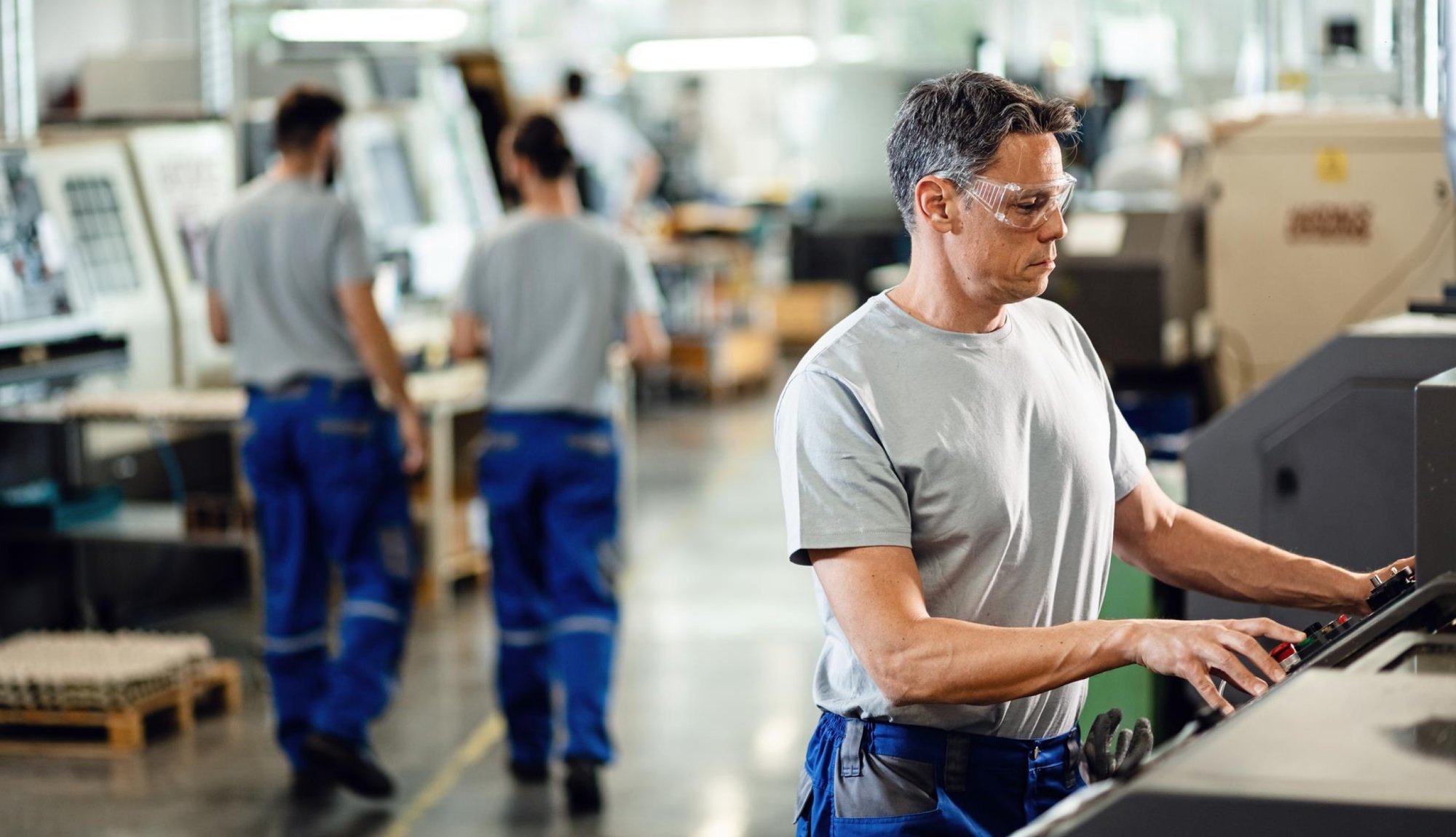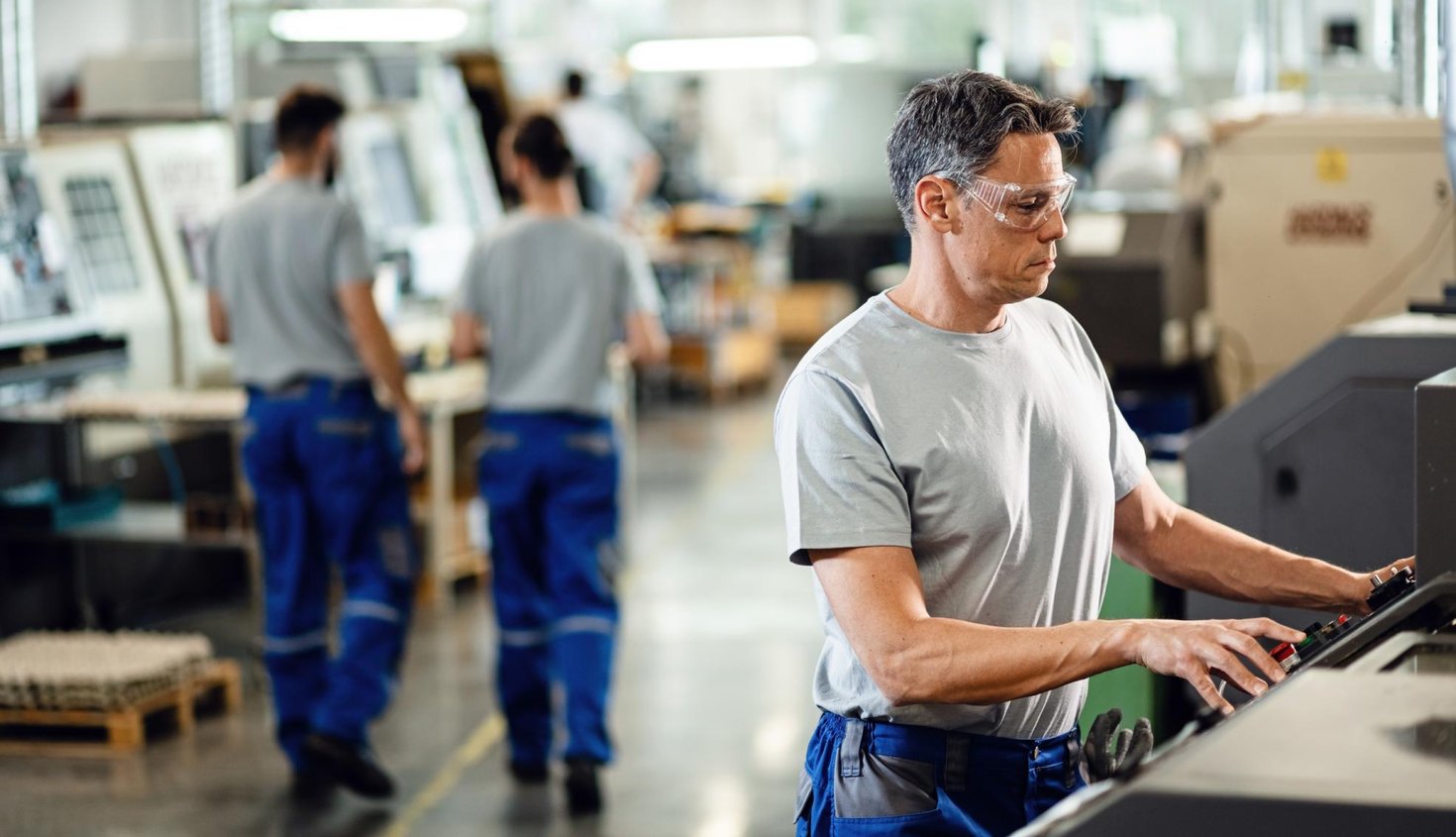How IoT Changes the Engineering Industry


What’s the first thing that comes to your mind when you hear the words “Internet of Things”? It’s smart homes and wearables, isn’t it? But there’s so much more to this fascinating technology. IoT is steadily transforming the world, one industry at a time. Take manufacturing, for example. People have already named the rise of Industrial IoT “the next technological revolution.” It replaces the old approach to factory management with a new, digital and more productive one. Just imagine all your facilities working together accordingly as a single interconnected data-sharing system. IoT engineering connects all your assets and allows them to communicate with each other, gather data and make the overall manufacturing process safer and more efficient. Read on to find out how Internet of Things has changed the engineering industry and what it means for your business.
The Leader in Industrial Internet of Things
It’s not hard to believe that manufacturing is the leading industry in IoT application. Cisco, IBM, Microsoft, Intel, Epson and General Motors paved the way for using Internet of Things in their manufacturing process. When other engineering giants followed, the overall expenses on IoT in this industry reached $178 billion in 2016, with $102,5 billion spent on manufacturing operations. Today, 70% of retail and manufacturing businesses have already applied the IoT technologies to simplify their supply chain processes.
The future is even more promising. Accenture claims that by 2020, Industrial IoT will add more than $14 trillion to the global economy. By 2021, Industrial IoT market is forecasted to reach $123.89 billion. The BI Intelligence 2017 report shows that in the next 5 years companies will have to spend $5 trillion on IoT to stay competitive. Will yours be among them?
Connected Factories and Equipment Operations Centers
Generally, factories are full of equipment and devices, each needing maintenance on its own. It is also hard sometimes to provide proper documentation, like product specifications and lab notes, in the factory environment. Luckily, the factory of the future has all the assets interconnected into a single ecosystem, making the work of a factory manager so much easier. IoT can connect all the processes in your factories and integrate all operations and data. Each asset conveys information to the other and takes actions in response. And, of course, the documentation is stored digitally. A system like this can do wonders since it will provide you with structured data on the productivity of the factory almost effortlessly. It will also be easier to manage buildings and decide how to properly use the space inside the factory.
Even people can be connected to this smart ecosystem with the help of wearables. Airbus, for example, linked their employees to an IoT platform, just like they did with the machinery. This innovation increased their working speed since now everybody was connected and better informed.
Easier Equipment Management and Maintenance
Industrial IoT turns equipment maintenance into a smart and cost-efficient process. The Internet of Things ecosystem provides real-time data on the state of the equipment, tracking depreciation and predicting failure before it happens. With this technology, you know exactly what to expect from the machinery at your manufacturing facility and when to expect it. Identifying problems beforehand means better equipment management through maintenance and repair that can be scheduled at the right moment, without any delay or interruption. IoT gives you better control over both your assets and time.
Smart Manufacturing Process
Thanks to an IoT system, all assets work in relation to each other and you can see all the manufacturing operations as a single system. IoT in manufacturing changes the way we think about production lines. It doesn’t just provide you with individual data on each device but offers structured data on the entire production flow. It becomes easier to monitor every operation and manage all the phases of manufacturing.
Seeing the whole picture gives you three vital benefits. First, now you get to know the weak spots and bottlenecks in your manufacturing and fix them before they turn into real problems. Second, with the IoT technology, you can manage the supply based on the fresh market data, speeding up or slowing down manufacturing if needed. Third, IoT in manufacturing allows you to design a better product. Because technology tracks the whole lifecycle of your product from creation to endpoint and even further, IoT devices give you information on the way people interact with it, bringing better experience to your customers.
Smart Use of Resources
IoT tracks the use of all resources and reduces waste. The data collected by the sensors in IoT devices can show whether the assets are used efficiently and how to resolve the issue if they aren’t. They predict potential threats to energy systems and control energy consumption by managing the use of electricity in production and around the facilities. They can even automatically switch off the equipment when it’s not used for some time.
Cost Saving and Productivity Increase Through Automation
Companies have used robots and modern machinery in manufacturing long before “the next industrial revolution.” But it wasn’t until the advent of IoT that the control of the machinery has become easy and reliable. Morgan Stanley’s survey shows that the use of smart technologies in automation is the main reason why companies apply IoT. Smart automation saves costs and increases operational efficiency. BCG says that automation can reduce production costs by 20 to 40%. IoT engineering is already reducing human intervention into the manufacturing process but combined with AI, IoT is said to change the business forever.
We live in the age of big industrial transformations. Internet of Things can change a lot of what we know about production and manufacturing. It can turn factories into smart ecosystems and connect all of its facilities, bringing massive benefits for businesses. It enables a holistic approach towards supply chains, improves operational efficiency and tracks resources consumption. The fourth industrial revolution is not the future – it is already taking place. Are you going to you jump aboard or miss the train?
Join us in transforming the engineering industry. With pwrteamsat your side, you will make most out of the IoT revolution.
READ ALSO
 September 29, 2025
September 29, 2025
Build your team or extend with ours? Here’s what helps fintech CTOs decide
Read the post September 10, 2025
September 10, 2025
Fixed-price projects vs dedicated teams: A fintech CTO comparison
Read the post September 3, 2025
September 3, 2025
How burnout is crippling tech leadership in the Nordics and Benelux
Read the post September 29, 2025
September 29, 2025
Build your team or extend with ours? Here’s what helps fintech CTOs decide
Read the post September 10, 2025
September 10, 2025
Fixed-price projects vs dedicated teams: A fintech CTO comparison
Read the post September 3, 2025
September 3, 2025
How burnout is crippling tech leadership in the Nordics and Benelux
Read the postWrite your own
success story
with Pwrteams!
Share your details in the form, tell us about your needs, and we'll get back with the next steps.
- Build a stable team with a 95.7% retention rate.
- Boost project agility and scalability with quality intact.
- Forget lock-ins, exit fees, or volume commitments.